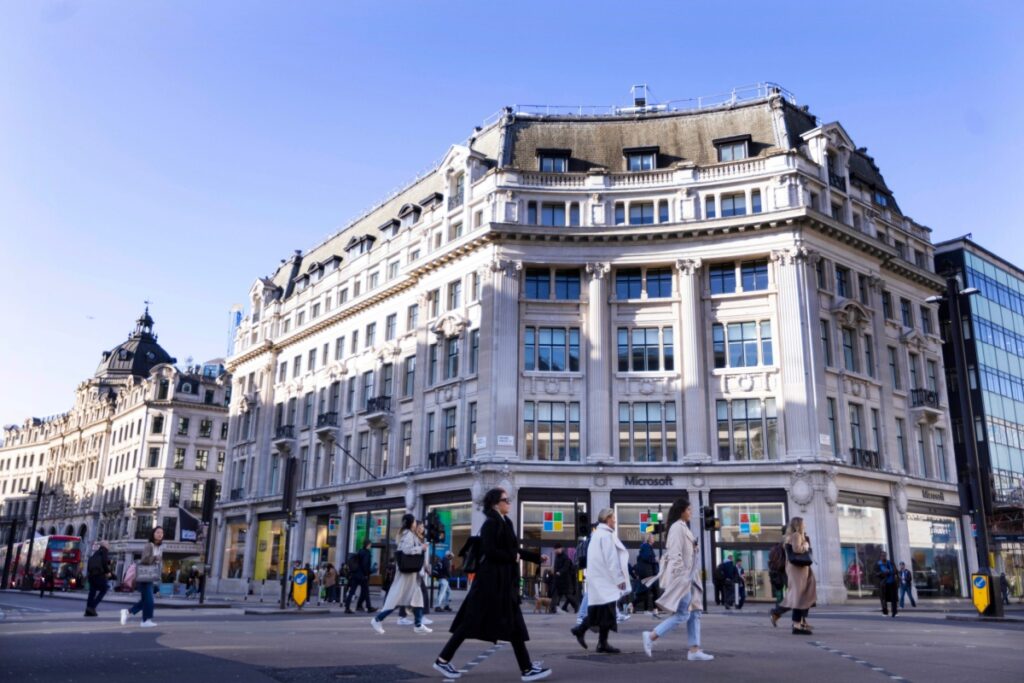// A staggering 125,515 retail jobs have been cut &13,867 shops shuttered for good since the start of the year, new data shows
// Equates to nearly 15,700 job cuts each and every month
// Job losses at small retailers total 32,598 while retailers with 5 or more stores shed 92,917 jobs between Jan-Aug
More than 125,000 jobs in the UK retail sector have been lost in the first eight months of 2020 – far higher than previous estimates, new data shows.
According to analysis by the Centre for Retail Research, 125,515 retail jobs have been axed and 13,867 shops have permanently shut across high streets, shopping centres and retail parks.
The research found a previously-unaccounted 32,598 positions have gone at independent retailers, although the majority of job cuts have been at multiple retailers – those with five stores or more, including the bigger-name chains – with 92,917 job cuts.
READ MORE:
- All the retailers that have made job cuts amid Covid-19
- Treasury calls for councils to return over £1bn in unspent coronavirus support
- Retail no longer the main attraction on UK high streets
During the period covering January 1 until August 1 this year, independent retailers closed 9839 shops – more than double the 4028 closed by multiple retailers.
The research also shows that 43,381 jobs were lost through retailers falling into administration during the same period, while a further 10,556 jobs were cut through CVAs.
A further 71,578 jobs were shed through “rationalisation” as part of cost cutting programmes by multiple retailers or small shops simply pulling their shutters for good.
The total 125,000 jobs axed in the retail sector do not include those lost in the leisure and hospitality industry, which is suffering its own employment cull.
“There are some good times being had, but the majority of retailers are under incredible pressure,” Centre for Retail Research director Professor Joshua Bamfield said.
“Many retailers really missed the opportunity in the early 2010s to recast their businesses.
“They’re being forced to do it now and they have to move more quickly because what should’ve been done over five years is being done over six months.”
BRC chief executive Helen Dickinson said: “Coronavirus is continuing to have a devastating effect on many retail businesses, with shopping malls and town centre shops suffering significantly lower footfall.
“Government must ensure a more sustainable long-term tax system – avoiding the cliff-edge of rents and business rates in April.
“Without action, the recent job losses we’ve seen across the industry may be just the tip of the iceberg.”
This year has seen a surge in landlords and retailers furiously negotiating, with some retailers calling for a switch to sales-based rents – which is already used heavily throughout transport hubs.
High street stalwarts have already announced major changes and staff cutbacks.
Marks & Spencer revealed 7000 positions would go as sales plunged, while Debenhams put itself into administration protection and slashed 2500 positions.
John Lewis, the former barometer of the nation’s shopping habits, announced 1300 jobs were at risk after confirming eight stores would not reopen post-lockdown – including the Birmingham branch which falls under the jurisdiction of its Conservative mayor Andy Street, himself the former boss of John Lewis Partnership.
Meanwhile, there is a concerted effort to force the UK Government to extend the current one-year business rates holiday.
According to the PA news agency, executives at Sir Philip Green’s Arcadia Group retail empire and River Island, alongside lobbyists representing West End retailers and businesses, have been encouraging retailers to write to the Treasury.
Some have also been asked to include estimates of how many jobs they plan to axe in the event an extension beyond the end of March deadline is not granted.
The Treasury wrote off £10.13 billion in taxes due for business rates, fully exempting 358,264 occupied retail, leisure and hospitality properties in England, according to the real estate adviser Altus Group.
“Many retailers are clinging on to solvency and for those, an abrupt halt to the current rates holiday could spell the end, full stop,” Altus Group head of business rates Robert Hayton said.
“Whilst what comes next cannot be a return to pre-pandemic levels of property taxes for retailers, it must strike a balance with public finance affordability.
“Targeting support to where it is most needed is the only realistic way to achieve this.”
In response to the jobs crisis in retail, the UK Government has announced a series of attempts to get the public shopping and spending.
These include a Kickstart scheme to encourage businesses to create new jobs for those on low incomes or who are unemployed, which will be funded by the government for six months. No figures of costs have been revealed so far.
Chancellor Rishi Sunak has also promised a Job Retention Bonus of £1000 per employee brought back to work once the furlough scheme ends in October, resisting calls to extend the furlough payments.
Insolvency Service figures reveal 305,427 positions were reportedly at risk of redundancy, according to filings by businesses, and further plans to increase spending also include encouraging workers back on to the commute to support local businesses in office districts.
London’s West End is facing particular difficulties, with the £5 billion a year spent by tourists vanishing overnight and retailers are pushing the government to offer tax-free shopping for EU visitors.
Jace Tyrrell, chief executive of New West End Company which represents 600 West End businesses, said retailers expected to see EU visitors returning to the UK first, meaning it was vital to offer them a chance to boost the sector.
“Ensuring that visitors from the EU are eligible for tax-free shopping ahead of the transition period ending on the 31st of December will give the economy a potential billion pound boost that it will desperately need in 2021 and beyond,” he said.
The UK retail sector generated sales of £384 billion last year while employing more than 2.9 million workers directly.
with PA Wires
Click here to sign up to Retail Gazette‘s free daily email newsletter


















